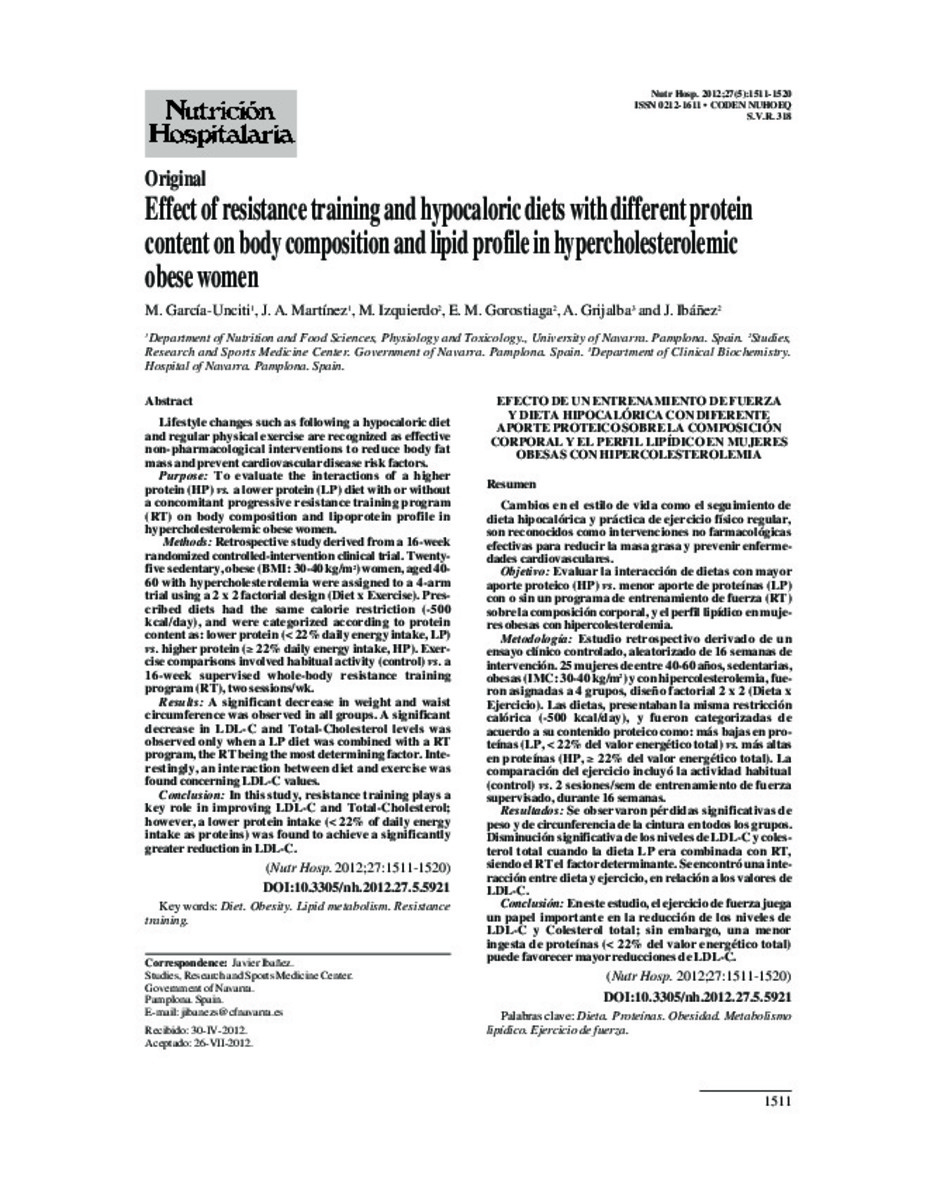Effect of resistance training and hypocaloric diets with different protein content on body composition and lipid profile in hypercholesterolemic obese women
Otros títulos :
Efecto de un entrenamiento de fuerza y dieta hipocalórica con diferente aporte proteico sobre la composición corporal y el perfil lipídico en mujeres obesas con hipercolesterolemia
Palabras clave :
Diet
Obesity
Lipid metabolism
Resistance training
Fecha de publicación :
2012
Editorial :
Sociedad Española de Nutrición Parenteral y Enteral
Cita:
Garcia-Unciti M, Martinez JA, Izquierdo M, Gorostiaga EM, Grijalba A, Ibanez J. Effect of resistance training and hypocaloric diets with different protein content on body composition and lipid profile in hypercholesterolemic obese women. Nutr Hosp 2012 Oct;27(5):1511-1520
Aparece en las colecciones:
Estadísticas e impacto
0 citas en

0 citas en

Los ítems de Dadun están protegidos por copyright, con todos los derechos reservados, a menos que se indique lo contrario.







